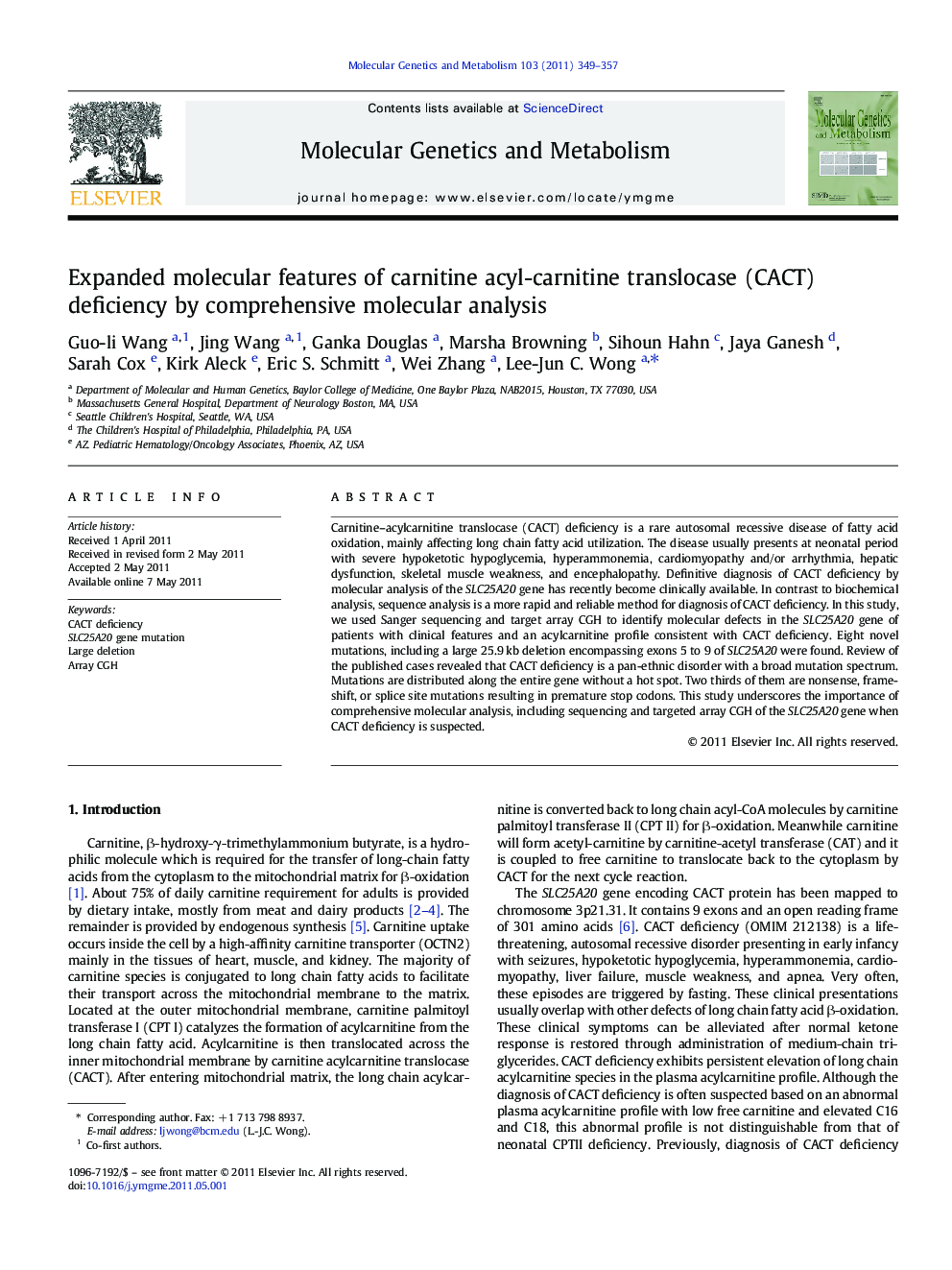| Article ID | Journal | Published Year | Pages | File Type |
|---|---|---|---|---|
| 1999084 | Molecular Genetics and Metabolism | 2011 | 9 Pages |
Carnitine–acylcarnitine translocase (CACT) deficiency is a rare autosomal recessive disease of fatty acid oxidation, mainly affecting long chain fatty acid utilization. The disease usually presents at neonatal period with severe hypoketotic hypoglycemia, hyperammonemia, cardiomyopathy and/or arrhythmia, hepatic dysfunction, skeletal muscle weakness, and encephalopathy. Definitive diagnosis of CACT deficiency by molecular analysis of the SLC25A20 gene has recently become clinically available. In contrast to biochemical analysis, sequence analysis is a more rapid and reliable method for diagnosis of CACT deficiency. In this study, we used Sanger sequencing and target array CGH to identify molecular defects in the SLC25A20 gene of patients with clinical features and an acylcarnitine profile consistent with CACT deficiency. Eight novel mutations, including a large 25.9 kb deletion encompassing exons 5 to 9 of SLC25A20 were found. Review of the published cases revealed that CACT deficiency is a pan-ethnic disorder with a broad mutation spectrum. Mutations are distributed along the entire gene without a hot spot. Two thirds of them are nonsense, frame-shift, or splice site mutations resulting in premature stop codons. This study underscores the importance of comprehensive molecular analysis, including sequencing and targeted array CGH of the SLC25A20 gene when CACT deficiency is suspected.
